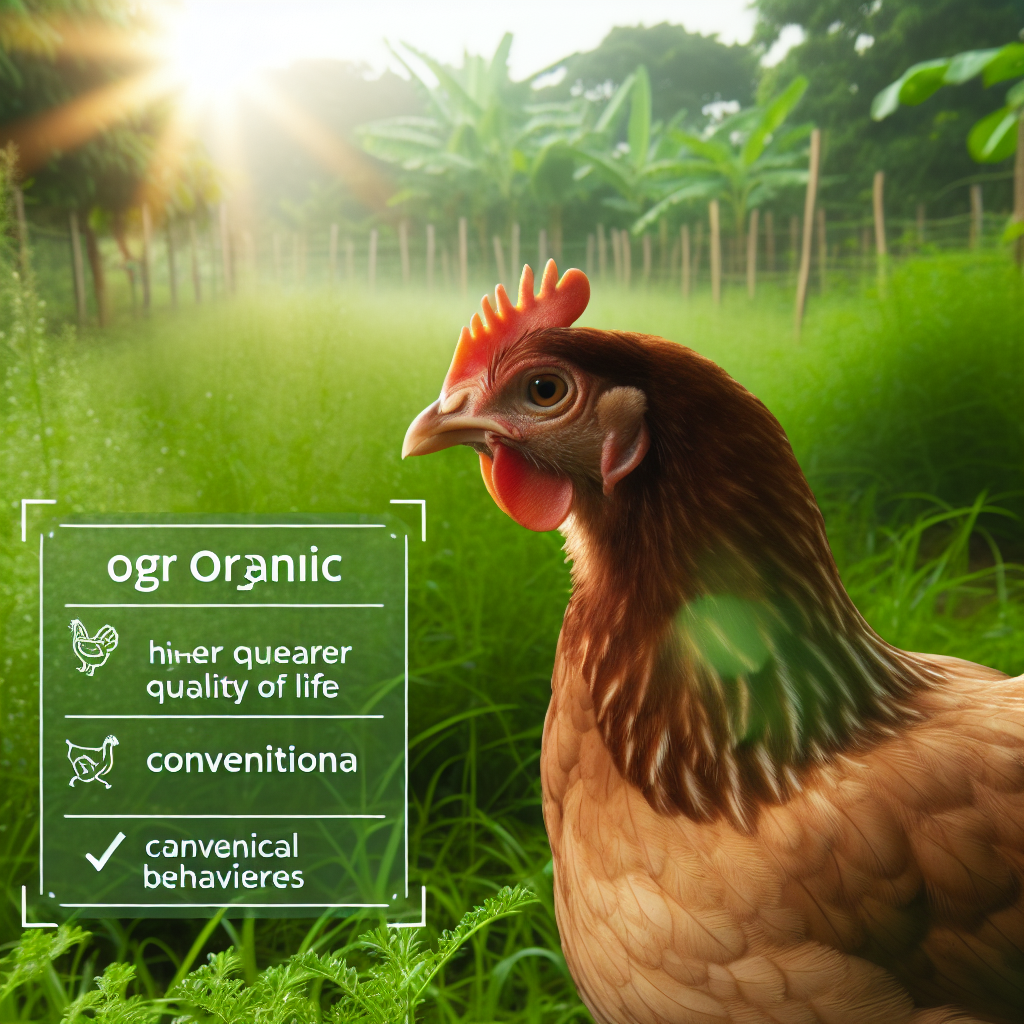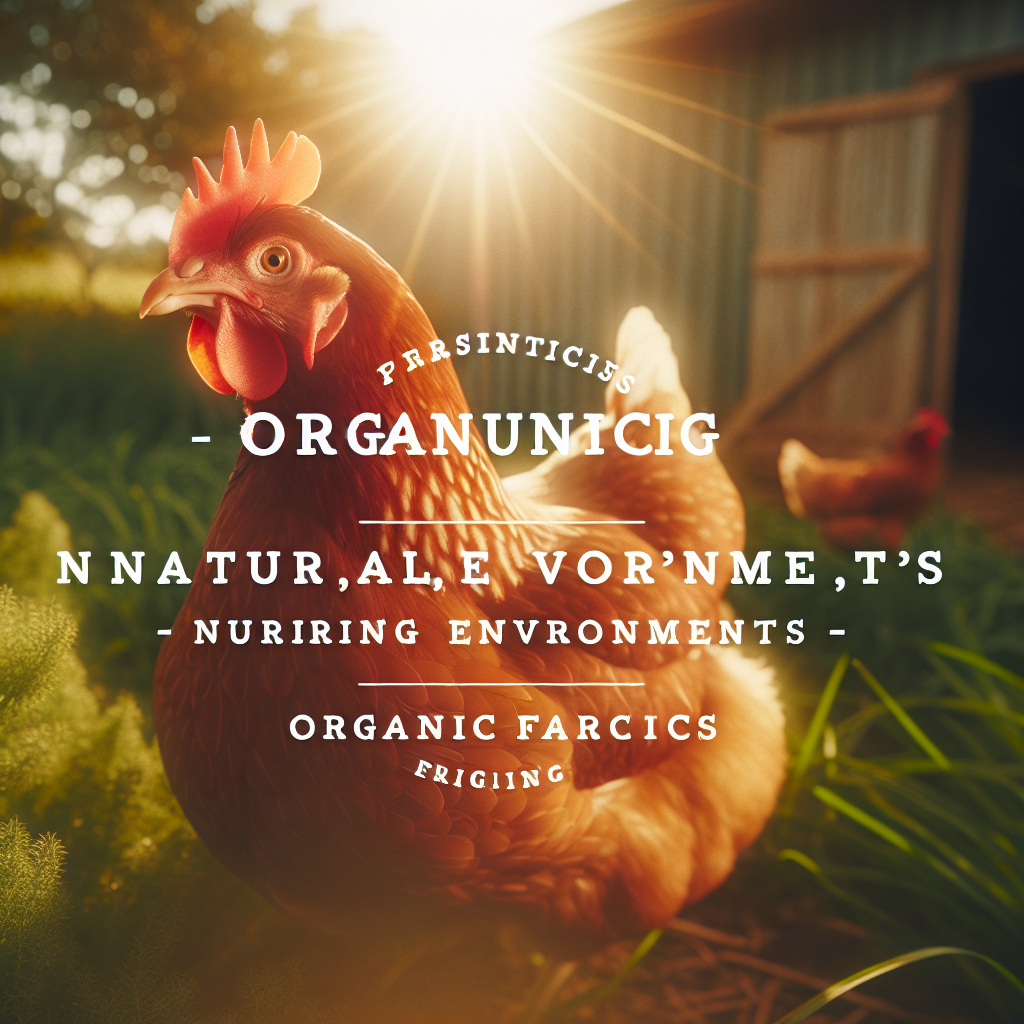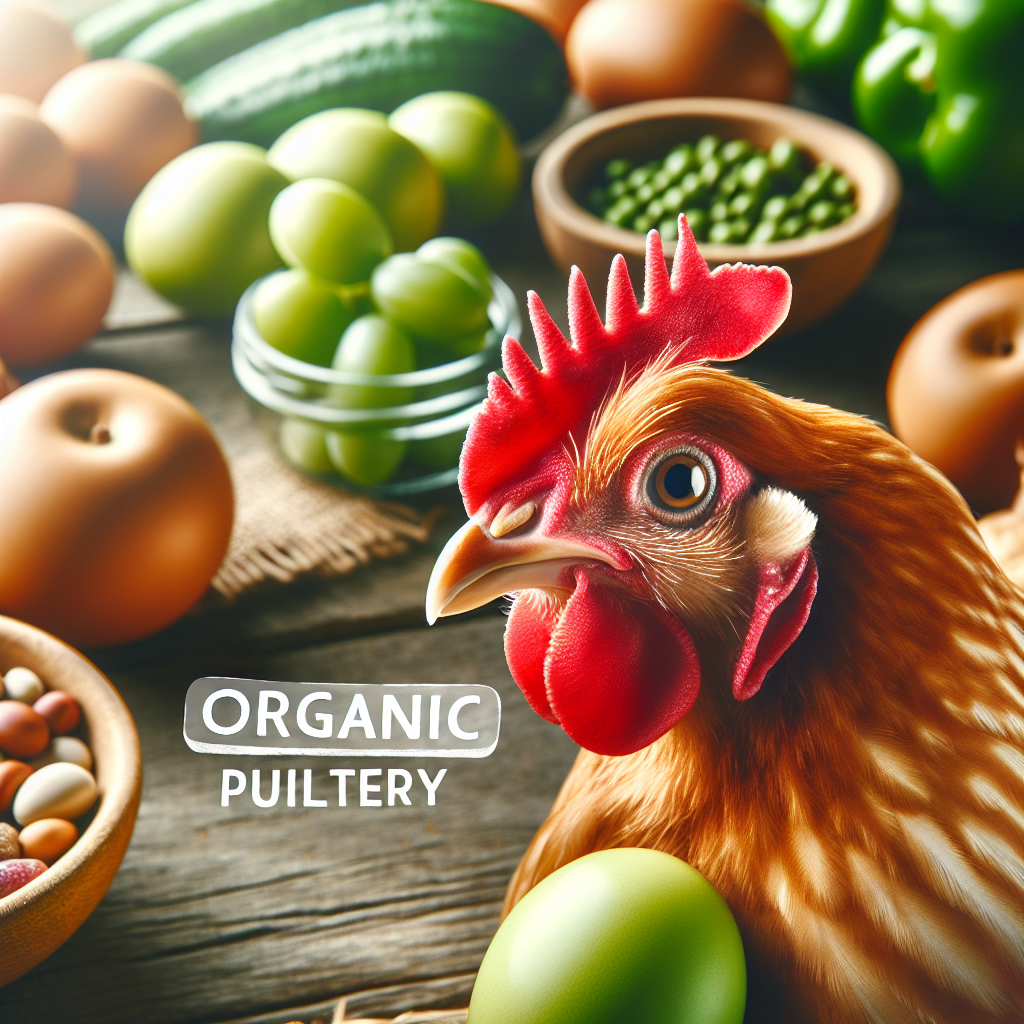If you’re a poultry farmer who’s passionate about ensuring the highest standards of organic practices across all aspects of poultry care and management, then you’re in the right place. In this article, we’ll explore effective strategies and tips to help you maintain consistency in organic practices throughout your poultry farm. Whether it’s feed, health management, or housing, we’ve got you covered. Get ready to level up your organic game and enhance your poultry farming experience!
1. Understanding organic practices in poultry care and management
1.1 What is organic poultry farming?
Organic poultry farming refers to the practice of raising chickens and other poultry in accordance with organic principles and standards. It involves using natural and sustainable methods to promote the health and well-being of the birds, while minimizing the use of synthetic chemicals, antibiotics, and genetically modified organisms (GMOs). In organic poultry farming, the emphasis is on providing a natural environment, nutrition, and care for the birds, ensuring their physical and behavioral needs are met.
1.2 Benefits of organic practices in poultry care
There are numerous benefits to implementing organic practices in poultry care. Firstly, organic poultry farming promotes the overall health and well-being of the birds. By providing them with a diet rich in organic feed and supplements, free from harmful additives and toxins, their immune systems are strengthened, making them better able to resist diseases. Additionally, organic practices encourage natural behaviors, such as foraging and dust bathing, which contribute to the birds’ physical and mental stimulation.
Secondly, organic poultry farming is beneficial for the environment. By avoiding the use of synthetic chemicals, pesticides, and fertilizers, organic practices help to minimize pollution and soil degradation. Furthermore, organic poultry farms often implement sustainable waste management practices, such as composting, which can reduce the environmental impact of waste.
Lastly, there is a growing demand for organic products in the market. By adopting organic practices, poultry farmers can tap into this market and potentially command higher prices for their organic poultry products. This can lead to increased profitability and a competitive advantage in the industry.
1.3 Challenges of implementing organic practices
While there are many benefits to organic poultry farming, there are also several challenges that farmers may face when implementing organic practices. One of the main challenges is the availability and sourcing of organic feed and supplements. Organic feed can be more expensive and may not be as readily available as conventional feed. Farmers may need to establish relationships with local suppliers or invest in their own organic feed production systems.
Another challenge is managing pests and diseases without the use of synthetic chemicals. Organic farmers rely on natural pest control methods, such as predator insects or biological controls, which may require more time and effort to implement effectively. Additionally, finding organic solutions for disease prevention and treatment can be more challenging, as the range of approved organic treatments is limited.
Additionally, meeting certification and regulatory requirements for organic poultry farming can be demanding. Farmers need to keep comprehensive records and documentation, maintain high standards of animal welfare, and comply with organic labeling and marketing guidelines. This requires time, organization, and attention to detail.
2. Creating a comprehensive organic management plan
2.1 Assessing the current state of your poultry operation
Before implementing organic practices, it is important to assess the current state of your poultry operation. This involves evaluating the existing infrastructure, management practices, and the health and performance of the birds. By conducting a thorough assessment, you can identify areas that may need improvement and develop a roadmap for transitioning to organic practices.
Start by evaluating the housing and space management. Assess the design and construction of the poultry housing, ventilation systems, and lighting. Ensure that the housing is conducive to natural behaviors and provides adequate space for the birds to move and exercise. Evaluate the cleanliness of the housing and the management of litter and waste.
Next, evaluate the feed and nutrition practices. Examine the types of feed and supplements currently used and determine if they meet organic standards. Assess the storage and handling of feed to ensure that it is protected from contamination and spoilage.
Lastly, assess the health and welfare of the birds. Look for signs of stress, disease, or malnutrition. Evaluate the current vaccination and medication practices and determine if they align with organic principles.
2.2 Setting organic goals and objectives
Once you have assessed the current state of your poultry operation, it is important to set organic goals and objectives. These goals will guide your transition to organic practices and help you stay focused on your desired outcomes. Consider the specific areas you want to improve, such as feed and nutrition, housing and space management, and disease prevention.
For example, your goal might be to source 100% organic feed and supplements within the next six months. Another goal might be to redesign the poultry housing to provide more space and promote natural behaviors within the next year. By setting clear and specific goals, you can measure your progress and hold yourself accountable for implementing organic practices.
2.3 Developing a detailed organic management plan
With your goals and objectives in place, it is time to develop a detailed organic management plan. This plan should outline the specific actions and strategies you will take to achieve your goals. Consider each aspect of poultry care and management, such as feed and nutrition, housing, pest control, and flock management, and determine the steps you need to take to ensure organic practices.
Include a timeline for each action and assign responsibilities to specific individuals or teams. Identify any resources or training that may be needed to implement the plan successfully. Regularly review and update the organic management plan as your poultry operation evolves and new challenges or opportunities arise.
By creating a comprehensive organic management plan, you can ensure that all aspects of poultry care and management are aligned with organic principles. This plan will serve as a roadmap for your transition to organic practices and will help you stay on track towards your organic goals.
This is a comprehensive article on ensuring consistent organic practices across all aspects of poultry care and management. In the following sections, we will explore the various elements of organic poultry farming and provide guidance on how to implement organic practices effectively. From feed and nutrition to housing and space management, we will cover everything you need to know to maintain a successful organic poultry operation. So, let’s dive in and learn how to create a comprehensive organic management plan for your flock.




